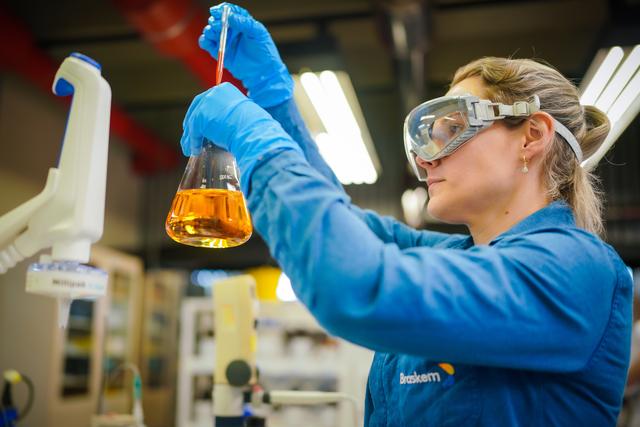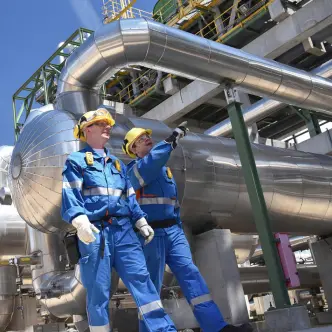Article: A climate favorable to the Accord

Jorge Soto *
The approval of the Paris Accord, in late 2015, drew much criticism. Some have said, and continue to say, that it is insufficient to address the climate issue, or that it is weak, as it does not ensure punishment for countries that fail to meet their commitments. Its acceptance was growing, however, culminating in its ratification in record time late last year. It took place in less than one year, while ratification of the Kyoto Protocol took no less than 7 years.
Now, it looks like a new level has been reached. Once Paris Accord was threatened, the voices of its supporters grew stronger. Despite the importance of the United States, I understand that the Accord is not at serious risk. Two main reasons are (1) the idea that there can be no setback in the negotiations predominates among governments; and (2) the movement for mitigation and adaptation to climate change makes socioeconomic sense.
The repercussion of the new position of the U.S. government was strong and drew immediate criticism. A number of rulers showed their discontent. Within the G7, no country supported the U.S. government's move. At the G20 meeting, even more pressure was placed on top of the U.S. government. Internally, in the U.S., there seems to be no consensus in the government itself to weaken the Paris Accord. It was reported that Secretary of State Rex Tillerson, former President and CEO of Exxon Mobil from 2006 to 2016, has stepped up against this move. In the U.S., where federalism applies, at least 10 states, including two states governed by Republicans, have decided to form the Climate Alliance, which ratifies the commitment to the global agreement, independently from the White House. A number of cities in America also position themselves in favor of the Accord. These include Pittsburgh, which was once the center of the steel industry, and New York City.
German leader Angela Merkel recalled that the moment requires the acceleration of the confrontation of climate change. In fact, the resources attracted by the low-carbon economy make this situation clear. According to data from the World Bank, roughly $350 billion were invested globally in renewable energy in 2015, more than twice the value of fossil fuel energy. The same entity estimates $23 trillion in business opportunities in the low-carbon economy in developing countries alone between 2016 and 2030. In the same period, the number of people employed by the renewable energy sector is expected to jump from 10 million to 23 million in the world, according to calculations from the international renewable energy agency, Irena. Based on these data, the intention to abandon the Accord and to preserve jobs seems contradictory.
The argument of seeking to protect the interests of the American productive sector is far from being a consensus in the country's business environment. There were manifestations by the leaders of companies such as Exxon Mobil and Shell, from the oil sector (often associated with greenhouse gas emissions) or from others such as Apple, DuPont, and Dow. Business leaders such as Tesla's Elon Musk, Disney's Robert Iger, Facebook's Mark Zuckerberg, and GE's Jeffrey Imelt condemned the decision, the first two announcing their resignation from the board of executives who support the White House. The "We Are Still In" manifesto, generated within American society itself, which has already been signed by cities, states, universities, companies, and investors. According to its organizers, the manifesto has already received support from leaders representing a GDP of $6.2 trillion.
In Brazil, the government issued a statement saying it was disappointed with the announcement by the U.S. government. Furthermore, on June 5, the World Environment Day, to publish a decree-law officially promulgating the Brazil's adhesion to the Paris Accord. In the business environment, the IEC (Corporate Climate Initiative), a coalition formed by the Business Council for Sustainable Development (CEBDS), Global Compact, Ethos Institute, GVCes, CDP and Envolverde launched a manifesto entitled "Nós Permaneceremos" ("We Will Stay"), detailing the support of these organizations for the Accord.
The effective U.S. withdrawal, which can only be formally defined in 2020, concerns the entire world. The IPCC scientists argue that a "carbon neutral" society will be required in this century to contain climate change at acceptable levels. Today, everything we produce or use causes greenhouse gas emissions, directly or indirectly. How will this future be? The new economy opens opportunities for those who offer solutions, a possibility accessible to all. Even Brazil, which already has a comparative advantage thanks to the very renewable position of its electricity generation (75%) and thanks to its high productivity in biomass (the energy productivity of sugarcane is over 6 times that of maize, used in the United States, and more than twice that of beet, the dominant source in in Europe).
If investments are made in innovation, these comparative differentials can become competitive advantages, allowing Brazil to occupy a prominent place in the low-carbon economy. There is at least one concrete example: Brazil is already the world's largest producer of biopolymers. Nevertheless, it can certain go even further.
* Jorge Soto holds a PhD in Environmental Planning from COPPE/UFRJ and serves Director of Sustainable Development at Braskem.
For more information related to press, please contact:
Fato Relevante
imprensa.braskem@agenciafr.com.br
Related News

Se você é um profissional da imprensa, a Braskem tem um canal feito só pra você.
Acesse aquiPress Releases
More news
Shell Chemicals and Braskem bring certified bio-attributed and bio-circular propylene and polypropylene to the U.S. market

Braskem announces partnership with Northwestern University for the development of CO2 conversion technology

Braskem invests in expanding capacity and partnerships for producing plastics from renewable sources

Braskem and Sojitz Corporation launch Sustainea

Braskem launches Wenew, its new global Circular Economy ecosystem

Braskem recognized by MIT as one of Brazil's most innovative companies
Customers
Become a Braskem customer
Braskem is one of the largest suppliers of chemical and petrochemical products in the world, recognized for its focus on sustainable development, innovation and quality.
We believe in lasting partnerships, we have a broad portfolio of products and we work together with our customers to create new practical and sustainable solutions in all markets.
Talk to our sales team


 Braskem Global
Braskem Global
 Braskem Idesa
Braskem Idesa
 Braskem USA
Braskem USA
 Braskem Europe
Braskem Europe











